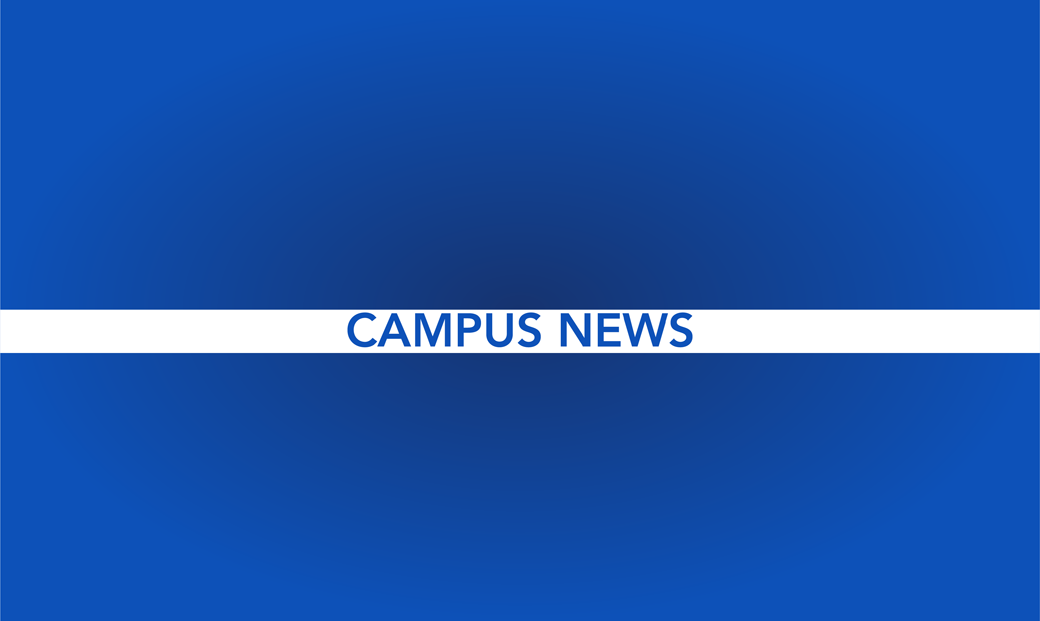
Students hope to jumpstart campus recycling program
A group of USD students is hoping the results of a sustainablity survey will spark more of an interest to recycle on campus and change the way the university handles its recycling.
Currently, there’s no uniform recycling program on campus. However, a group of students in the sustainability capstone class are working to get one started.
The viability of a campus-wide recycling program is in the process of being evaluated by the Verdis Group, with help from the sustainability capstone class. A report will be delivered to the President’s Committee on Sustainability in early May.
“A lot of students don’t realize that we don’t recycle because a lot of the buildings on campus have recycling bins,” said Kaitlyn Rangel, a senior in the capstone class. “So one of the things Verdis asked us to do was kind of figure out who is in charge of (recycling) in different buildings.”
Rangel said finding out what happens to recyclable waste in all of the buildings on campus has proven difficult.
“We tried to go around and ask students and staff members what they knew,” Rangel said. “It’s a weird gray area because the custodian’s job is to (just) throw stuff away. Recycling needs to be low-key because it’s not in their job descriptions – they’re not supposed to. The recycling bins in Beacom don’t get collected as recycling. We don’t want people to get to disheartened by that because we’re going to fix it.”
Rangel said recycling at USD isn’t a coordinated effort and each building has their own recycling plan because the university doesn’t have a unified program. So while waste in recycling bins in Beacom isn’t recycled, recycling in residence halls is taken care of by RA’s.
The recent sustainability survey sent to students in an email was one of the first steps in a bigger process.
The Verdis Group’s overall evaluation process includes the recent sustainability survey, a waste audit, an infrastructure assessment and a vender assessment. The report will also provide recommendations for a successful campus-wide recycling program.
Scott Pohlson, chair of the President’s Committee on Sustainability, said this has cost USD more than $23,000 to conduct.
“It’s really a holistic approach. We wanted a solid recommendation from someone who has seen how other universities have improved their sustainability and recycling program,” Pohlson said. “We want and independent view on what’s good or bad.”
Now that the survey has been completed, the next step in Verdis’ evaluation is a waste audit.
In this process, garbage bags will be gathered from specific places around campus and taken to an off-site location. Then Verdis employees, along with capstone class students, will sort through all the waste and categorize it to be measured by weight.
“I think the waste audit is going to be super fun,” Rangel said. “The goal is just to figure out what people are throwing away.”
Pohlson is also excited about the waste audit.
“It will give us a good look at things that are getting thrown away that we could recycle in the future,” he said. “For example, if we find Coyote Village has a lot of milk jugs, we know we need to have special bins for that kind of plastic. That’s good information.”
First-year student Chelsy Bailly participated in the survey and thinks this project could be beneficial.
“Certain people will recycle and others won’t,” she said. “I would recycle more if it was convenient, but I don’t want to put in the extra effort.”
As the end of the evaluation gets nearer, Pohlson said he’s anxious for the final results.
“I’m really excited to get all of our results back, I just wish we were already done with this part,” he said. “The beginning of May is the first time that USD will see results.”
Rangel is also excited to see the results and hopes they’ll energize other students.
“A lot of students don’t know that we don’t recycle and I think letting them know that in the most non-shameful way possible will hopefully get people going,” she said. “Our main goal is not just about recycling, it’s about creating this climate of sustainability. It’s about making people care and just making recycling something that happens on campus.”
In a previous version of this article Rangel was misspelled, The Volante apologizes for the error.


